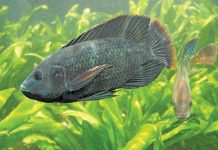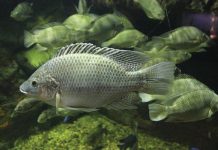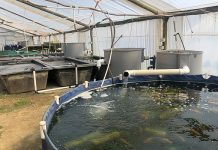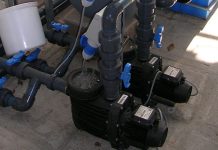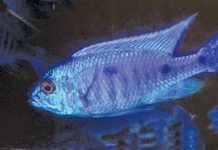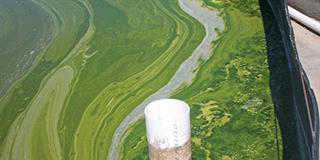In the maelstrom of professional aquaculture, one sometimes gets bogged down with technicalities: filter size, fish species, growth rates, system design, feed conversion ratios, economic viability… and one runs the risk of losing something along the way. This ‘something’ is a passion for fish.
Consider any previous serious occupation of yours, and ask yourself honestly: why was I in that line of work? The chances are that you were drawn to it out of a keen interest or at least a strong curiosity. You are highly unlikely to have been forced into it.
Certainly, I know of no one who was ever forced, or obliged, to become an aquaculturalist.

Ro Lowe-McConnell’s wonderful tilapia book (MPM Publishing, Ascot), describes her adventures with the numerous tilapia species and their environments in the African Great Lakes.
Where’s the real interest?
One of the first questions I pose to my trainees is, “Why do you want to become a fish farmer?” The answers include a desire to make money, having access to suitable water, diversification of farming practices, and providing food for people. What is surprising, though, is that few trainees say they have a passion for fish. I receive numerous aquaculture enquiries from people who, alarmingly, admit to having never kept a fish alive in their lives and know absolutely nothing about them. Yet now they want to investigate the economic potential of aquaculture.
A shared passion
Successful people often surround themselves with ‘kindred spirits’. Get a group of fishy people into a room together, and they will talk passionately in loud voices for hours. Without wanting to sound sexist, I’ve found that most fish fanatics are male.
Whenever I have a group of teenagers visit the fish farm, it is usually the muscle-bound rugby forward who waxes enthusiastic about some tiny, electric blue cichlid, lurking in a corner of the hatchery, while the girls chat over their cellphones outside.
Maybe it is something to do with the technical aspects of fish life-support systems which attracts males, who then end up investigating aquaculture as a career.
A passion for fish usually starts at an early age. The bug bit me when I was just three and living on a boat on the Mediterranean island of Corsica. I spent countless hours peering overboard at thousands of colourful fish in the crystal clear water.


Mike Bruton’s memoirs When I was a fish and Peter Jackson’s autobiography, The English Basket are both inspirational reading for any fish fanatic. (Courtesy Nicolas James)
In later years, holidays at Lake Kariba fired a lifelong love for our African freshwater fish fauna, eventually leading to academic studies, research at the JLB Smith Institute of Ichthyology (now SAIAB), and finally into aquaculture, which now takes me throughout tropical Africa.
There are many of us who have the ‘fish bug’, and their books are well worth reading. Mike Bruton’s recently released When I was a fish (Jacana Media) tells of the author’s fascinating experiences among diverse fish, from stunted tilapia to coelacanths – and includes some thought-provoking philosophy. For enthusiasts, this is a must-read.
The late Peter Jackson’s self-published book The English Basket and Ro Lowe-McConnell’s The Tilapia Trail (MPM Publishing) both describe an ichthyologist’s adventures with fish in colonial Africa, from Lake Turkana southwards. None of these authors is, or was, an aquaculturalist, but all had a passion for fish.

